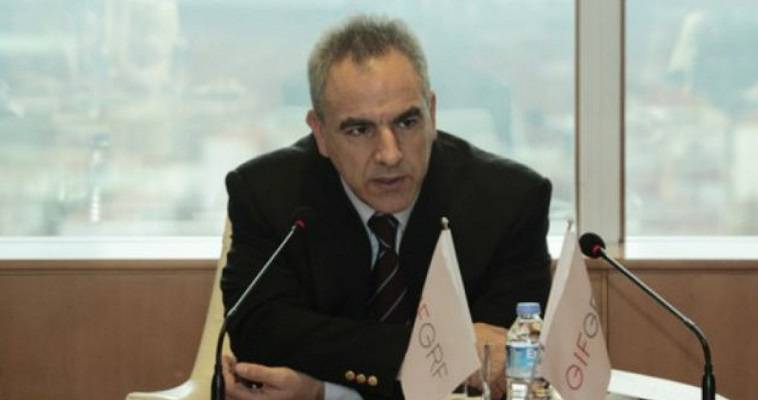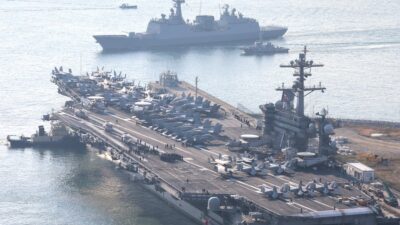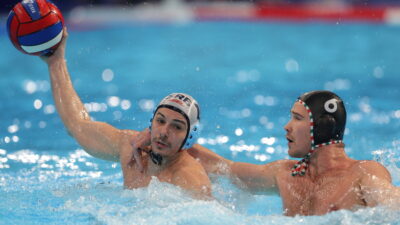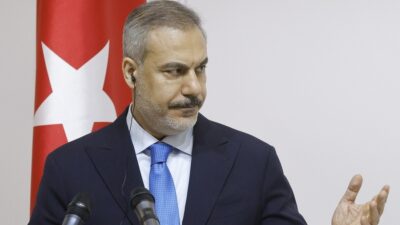Christos Pougialis: What more do we need to give to appease Turkey Mr Dokos?
13/06/2020
An article by Thanos Dokos, Deputy National Security Adviser in the newspaper “Ta Nea” on June 4, 2020, shows that the perceptions of some foreign policy experts cannot stray from the illusions of appeasing Turkey. But the reason given by actors such as one of the National Security Advisers has an impact on the country’s credibility, especially abroad.
Due to the position of the columnist, we understand that the article reflects the views of government circles and especially the Ministry of Foreign Affairs. In addition, the article is inspired by the spirit of think tank ELIAMEP, of which he was director until 2019. ELIAMEP influences Greek foreign policy and has contributed to the policy of appeasing Turkey, being the main think tank advising the foreign ministry.
It is very positive that the columnist prioritizes empowerment “in the areas of national defense, defense industry, strategic communications, strategic planning and crisis management and with the necessary link to national reconciliation”. But beyond that, there is the second priority in the article, as well as other worrying perceptions. It is worth commenting on some of them.
Strategy seen as tactics
“President Erdogan’s frequent tightrope exercises do not refer to an overall strategic plan,” the article said. Afterwards the author makes the erroneous assessment that “as due to geography and assertive policy, the opponent has the initiative to move at a tactical level, we will seek to take the initiative at the strategic level”. It seems that some experts are not convinced that Turkey has been moving for years following a strategic plan, based on what former Turkish Prime Minister Ahmet Davutoglu writes in his book “Strategic Depth”.
Nor do they seem to believe that he is following it faithfully, having the initiative of moves! Nor do they realize that Erdogan’s “tightrope maneuvers” are the tactics for achieving this strategic plan, that is, Turkey’s expansion into the old conquests of the Ottoman Empire, including (and mainly) Greece and Cyprus! But what “strategic initiative” can Greece take if it has not made a correct assessement of the situation? However, in the manner suggested by the article, the wrong solutions concerning foreign policy are arrived at.
In particular, according to the author, the above “strategic initiative” consists in: “formulating a policy of incentives and disincentives that will bring Turkey into the dilemma” normalization of relations with mutual benefit, subject to abandoning maximalist approaches and policies of coercion” or “continuing a conflictual policy at visible cos “, which include “demarcation of maritime zones with neighboring states, as well as diplomatic campaigns that annoy Turkey.”
Weak incentives and “visible costs”
Therefore, the Greek Foreign Ministry believes that “demarcation of maritime zones with neighboring states”, or the threat of it, is a “visible cost” that will reduce Turkish aggression. However, this “visible cost” still exists today, and yet Turkey is accelerating its actions. Through this logic, do they not delimit the EEZ with Cyprus, in order to use it as a temptation for placating Turkey?
Furthermore, if Turkey “abandons maximalist approaches”, that is, diminishes them, yet, without abandoning them, what will Greece do? Should we worry that there are thoughts in the Foreign Ministry to give Turkey something? Maybe to give up Cyprus through some new form of the Annan Plan, which Mr. Dokos had supported so much? Perhaps by giving up Greek sovereign rights with a “solution” through the International Court of Justice in The Hague, the appeal to which ELIAMEP has promoted? Because Turkey, in any case, is asking for just that!
In addition, for decades Greece has not made substantial “diplomatic campaigns that annoy Turkey”, with the exception of reactions to drilling in Cyprus, the Turkish-Libyan memorandum, and the neighbor’s hybrid attack on the Evros borders. The EU and the international community are also reluctant to impose any “visible costs” on its illegal activities in Cyprus, Syria or Libya.
Therefore “visible costs” is a non-existent threat for Turkey that is constantly violating international law without substantial costs, something which emboldens it. As it turned out after the above illegal actions of its neighbor, the Greek side does not have the potential to convince the EU of this “visible cost”. So can the government experts not see that, despite its illegal actions, Turkey, instead of accruing costs, has gained the right of becoming a viable interlocutor in Syria and Libya?
Offering weak incentives
The author also believes that the above framework “requires a policy of incentives and disincentives”: “co-formulation to the fullest extent possible, of the future EU-Turkey relationship in a way that safeguards Greek interests “. To see to what extent this “co-formulation” can have an effect, we need to look at what Turkey is asking of the EU.
As we know, it has called for the abolition of visas for the movement of Turkish citizens, the expansion of the customs union, its financing with several billion euros, mainly for the fight against immigration and finally its full accession to the EU. So, government pundits believe that for some, or even all of these issues, Greece can have a decisive influence.
However, Greece did not have the strength to react to the start of Albania’s EU accession talks unless the oppression of the Greek-national minority was stopped. Do these pundits think that even if Greece had a decisive influence, Turkey would agree to change its strategy? And if it does, for how long will this last? Can they not consider that Turkey often violates agreements and, in fact, even on the day after they sign such?
Finally, Mr Dokos belives that for the same aforementioned framework what is required: “undertaking [by Greece] a regulatory role in the cooperative schemes in the Eastern Mediterranean, linking the gradual lifting of the exclusion of Turkey with the change in its behavior.” One of the cooperative schemes in the Eastern Mediterranean is the East Med pipeline.
Dangerous illusions
As concerns the East Med pipeline, which Turkey is fighting, it does not need the mediation of the Greek side, if it ever wants to join. But will the Greek side allow Turkey to enter it, without the previous recognition of the Republic of Cyprus? Where do we expect Turkey to extract hydrocarbons so that it may participate in East Med?
As for the other scheme, namely the cooperation of Greece, with Cyprus, Israel, Egypt and informally with France, if Turkey stops its aggression and accepts the East Med, its exclusion will be lifted as a natural consequence, without the need for any mediation. . So how could Greece push her to “change its behavior”?
In short, we consider the above proposals to be unrealistic, based on illusions and will not affect the strategy of an important regional power, such as Turkey. There are also implications for the credibility of Greece’s image, which seems to be looking for a mediator to appease Turkey. These are the issues under consideration for Greece in order to figure out where they will push for concessions.
So we have to ask: Is it possible in the critical days that are transpiring to call the reversal of the hitherto illusory policy of appeasing Turkey with groundless incentives as a “strategic initiative”? How satisfied is the Greek Prime Minister with such “strategies” and such an image of the country?





